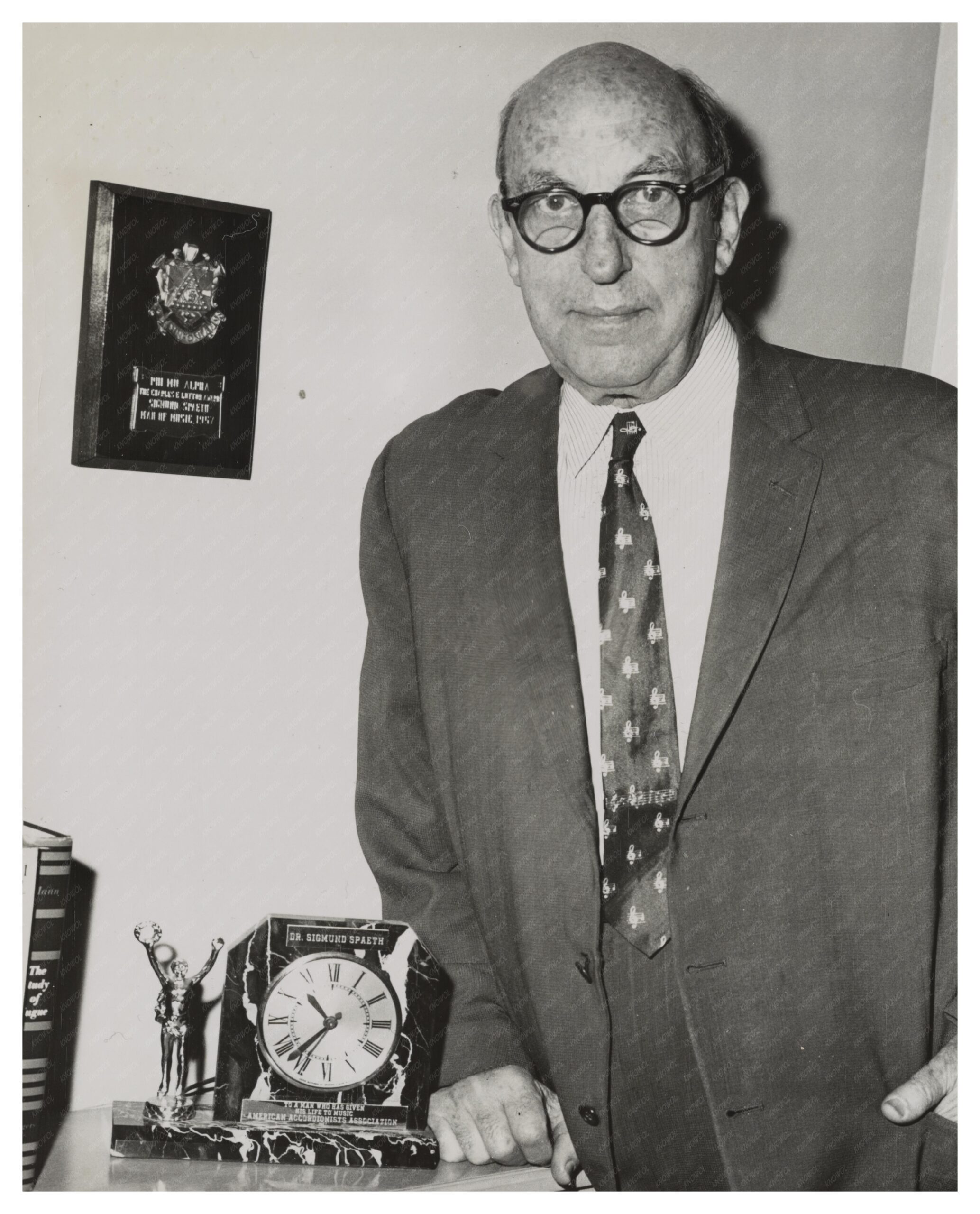Sigmund Spaeth (1885–1965) was an American musicologist, writer, and lecturer often referred to as “The Tune Detective.” He was well known for his work in promoting music appreciation among the general public. Spaeth had a unique approach to explaining and analyzing music, using humor and simplicity to make classical music more accessible to the average person.
Spaeth studied music at Princeton University and went on to earn a Ph.D. from the University of Pennsylvania. He went on to write music newspapers, lectured on musical topics, hosted radio programs and wrote several books on music, including The Common Sense of Music (1924), which became his most popular work. His writings and lectures were instrumental in helping ordinary people better understand music, particularly classical music, by highlighting its patterns and connections to everyday life.
Spaeth’s enthusiasm for uncovering the origins and connections between popular tunes made him a popular figure in the world of music education during the early to mid-20th century. He was also a composer and arranger, often bringing humor and wit to his musical explanations.
What is a musicologist?
Musicologists are academic experts who examine music through various lenses: historical, cultural, theoretical, and scientific. Their work involves:
- Analyzing music’s evolution, styles, and societal roles
- Researching specific genres, composers, or eras
- Exploring how music reflects broader contexts (social, political, cultural)
- Investigating the origins and development of musical traditions
- Studying the technical elements of composition and performance
Common specializations include:
- Music history
- Ethnomusicology (music in cultural context)
- Music theory
- Acoustics
Musicologists often engage with:
- Historical manuscripts
- Audio recordings
- Musical scores
Their goal is to uncover music’s significance and function across different times and cultures.


























